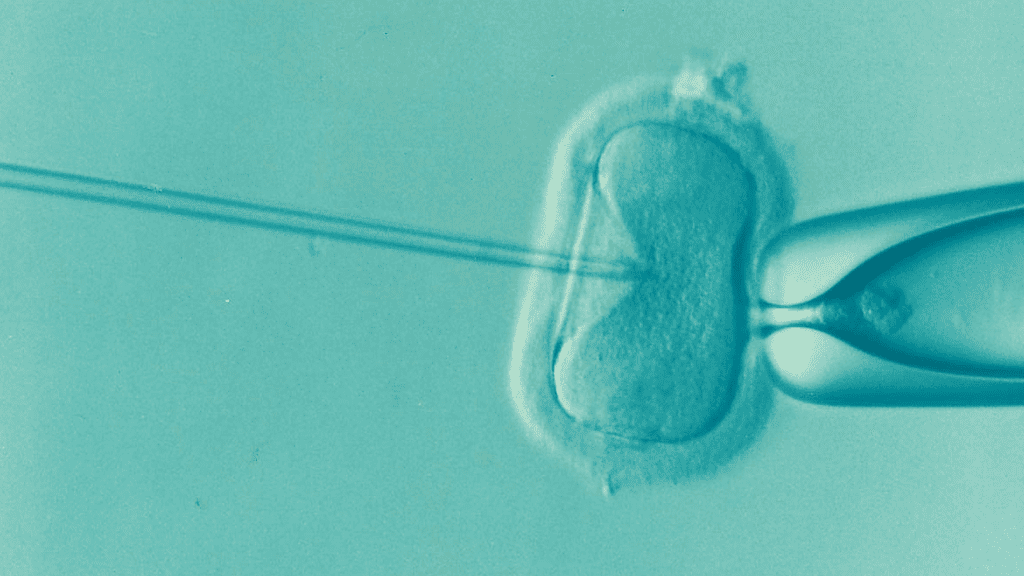Is IVF Biblical? Exploring Faith, Science, and Family
When you hear the term “in vitro fertilization” (IVF), you might picture a lab full of test tubes or a couple longing to hold a baby. It’s a topic that stirs up big questions—especially for people of faith. Does the Bible, a book written thousands of years ago, have anything to say about a modern medical procedure like IVF? For many, this isn’t just a theoretical debate; it’s personal. Maybe you’re a Christian wrestling with infertility, or perhaps you’re just curious about how ancient teachings connect to today’s world. Either way, you’re not alone in wondering: Is IVF biblical?
This isn’t a simple yes-or-no question. The Bible doesn’t mention IVF by name (no surprise there—it predates microscopes by centuries). But that doesn’t mean we’re left in the dark. By digging into scripture, looking at what it values, and pairing that with the latest insights from science and faith communities, we can piece together a thoughtful answer. Along the way, we’ll tackle what real people—like you—care about: Does IVF honor life? Can it fit with Christian beliefs? What do the ethical gray areas look like in 2025?
Let’s walk through this together. We’ll explore what the Bible says about life and family, how IVF actually works, and what Christians today are saying about it. Plus, we’ll dive into some fresh angles—like new research and personal stories—that don’t always make it into the usual discussions. Ready? Let’s get started.
What Does the Bible Say About Life and Family?
The Bible doesn’t talk about petri dishes or embryos, but it’s full of ideas about life, creation, and building a family. These themes give us a foundation to think about IVF. So, what’s the starting point?
Scripture paints life as a gift from God. In Genesis 1:28, right after creating humans, God tells Adam and Eve to “be fruitful and multiply.” It’s a blessing, not a command with a rulebook attached. Later, in Psalm 139:13-14, David writes, “For you created my inmost being; you knit me together in my mother’s womb. I praise you because I am fearfully and wonderfully made.” This suggests God’s hand is in the process of forming life, from the very beginning.
Family matters too. Stories like Abraham and Sarah (Genesis 21) show God stepping in to help a couple struggling with infertility. Hannah, in 1 Samuel 1, prays desperately for a child, and God answers. These examples highlight a deep biblical value: children are a blessing, and God cares about the longing for them.
But here’s the catch—none of these stories involve technology. They’re about natural conception, often with a divine nudge. So, does that mean anything beyond “natural” is off-limits? Not necessarily. The Bible doesn’t forbid medicine or innovation. Think about Luke, a doctor, writing a Gospel, or Paul telling Timothy to take wine for his stomach (1 Timothy 5:23). Healing and helping aren’t against faith—they’re part of it.
Still, life’s sacredness raises questions for IVF. If embryos are created outside the womb, what happens to them? Are they “life” in the biblical sense? Let’s hold that thought—we’ll dig deeper soon.
How Does IVF Work? A Quick Look
Before we go further, let’s break down IVF itself. It’s not as mysterious as it sounds, and understanding it helps us see where faith might fit in.
IVF stands for “in vitro fertilization,” which just means fertilization “in glass” (like a lab dish). Here’s the basic process:
- Stimulation: A woman takes hormones to produce multiple eggs instead of the usual one per cycle.
- Retrieval: Doctors collect those eggs using a small procedure.
- Fertilization: In a lab, eggs meet sperm—either from a partner or donor—and hopefully become embryos.
- Transfer: One or more embryos are placed in the uterus, aiming for pregnancy.
- Extras: Any leftover embryos can be frozen, donated, or, in some cases, discarded.
In 2025, IVF success rates are better than ever. According to the CDC, about 1 in 3 cycles lead to a live birth for women under 35, though it drops with age. Over 2 million babies have been born this way worldwide since 1978, when Louise Brown, the first “test-tube baby,” arrived.
So, it’s a tool—a pretty amazing one—for people facing infertility. But the process isn’t perfect. Extra embryos, costs (often $15,000+ per cycle), and emotional ups and downs complicate things. For Christians, the big question isn’t “Does it work?” but “Does it align with God’s design?”
Does IVF Honor the Biblical Value of Life?
Here’s where things get real. If life is sacred from the start, when does that “start” happen with IVF? Conception in a lab doesn’t look like the womb-based picture in Psalm 139. So, let’s unpack this.
Many Christians see life beginning at conception—when sperm and egg unite, whether in a body or a dish. The embryo has its own DNA, a unique blueprint. Biologically, it’s the first step toward a baby. Theologians like John Piper argue this means embryos deserve protection, no matter where they’re made.
But IVF often creates more embryos than get used. What happens to the extras? Some get frozen (over 1 million are stored in the U.S. alone, per 2023 estimates). Others might be donated to research or discarded. This is a sticking point. If an embryo is a potential life, is discarding it wrong? Some say yes, pointing to verses like Jeremiah 1:5 (“Before I formed you in the womb I knew you”). Others argue it’s not the same—those embryos aren’t implanted, so they’re not yet on the path to personhood.
Here’s a practical tip for couples wrestling with this:
✔️ Limit Embryo Creation: Ask your doctor to fertilize only what you’ll transfer (say, 1-2 per cycle). It reduces leftovers but might mean more cycles.
❌ Avoid Overproduction: Creating a dozen embryos “just in case” ups the ethical stakes if you don’t use them.
A 2024 study from the Journal of Medical Ethics found 60% of IVF patients were open to fewer embryos if it eased moral concerns. It’s not foolproof, but it’s a step toward aligning science with faith.
IVF and God’s Design for Marriage
Another angle: Does IVF fit with how God meant families to form? Marriage, in the Bible, is a union where kids often follow—like in Genesis 2:24, where “two become one flesh.” IVF changes that dance a bit.
For some, it’s a stretch too far. They argue conception should stay between husband, wife, and God—no lab involved. But others see it differently. If God gave us brains to invent medicine, isn’t IVF just a tool, like a heart bypass or glasses? Infertility isn’t new—Sarah, Rachel, and Hannah faced it—and IVF could be today’s answer to their prayers.
What about donor sperm or eggs? That’s trickier. Using a third party’s genetics feels less like “one flesh” to some Christians. Yet, adoption—welcoming a child not biologically yours—is celebrated in scripture (think Esther or Jesus himself, raised by Joseph). Could donor IVF be a modern twist on that?
Here’s a thought: In 2025, “embryo adoption” is growing. Couples donate unused embryos to others, letting them experience pregnancy. Over 10,000 babies have been born this way since the 1990s, per the National Embryo Donation Center. It’s a unique bridge—honoring life and expanding family.
What Are Christians Saying About IVF Today?
Christian voices aren’t all in harmony here. Let’s check the pulse in 2025.
- Evangelicals: Some, like the Southern Baptist Convention, leaned hard against IVF in 2024, voting to oppose it over embryo concerns. Others, like author Rosaria Butterfield, say it’s fine if you protect every embryo.
- Catholics: The Vatican’s firm—no IVF. Their 1987 document Donum Vitae calls it unnatural and risky to life. But plenty of Catholic couples quietly pursue it anyway.
- Mainline Protestants: More open. Many see it as a gift for the childless, trusting God works through science.
On X, posts from 2024 show this split. One user wrote, “The Bible says multiply—IVF just helps that along.” Another countered, “Life in a dish isn’t God’s plan.” It’s a live debate, fueled by personal stakes.
Quick Poll: What’s your take?
A) IVF is a blessing from God.
B) It’s too far from His design.
C) I’m not sure—it’s complicated.
Drop your vote in your head (or share it with a friend) and keep reading!
Fresh Insights: Three Under-the-Radar Angles
Most articles stop at “life begins at conception” or “marriage is sacred.” But there’s more to explore. Here are three points you won’t find everywhere:
1. The Emotional Toll and Spiritual Growth
IVF isn’t just science—it’s a rollercoaster. A 2024 study in Fertility and Sterility found 40% of IVF patients faced anxiety or depression during treatment. For Christians, this can feel like a test of faith. Does God want me to keep going? Is this suffering part of His plan?
Take Emily, a 32-year-old from Texas. After three failed cycles, she told me, “I felt God was silent. But praying through it taught me trust—He was there, even in the lab.” Her story’s not unique. IVF can deepen faith, not just challenge it. Pastors could step up here—offer support groups or sermons on infertility’s hidden pain.
✔️ Try This: Journal your feelings daily during IVF. Pair it with a verse like Romans 5:3-4 (“suffering produces perseverance”).
2. The Science of “Personhood” in 2025
Science keeps evolving. A 2023 paper from Nature showed embryos can now be studied up to 14 days outside the womb—way past the old 7-day limit. They’re growing, dividing, even forming early structures. Does that make them “more human”? Some Christians say yes, pushing for tighter IVF rules. Others argue it’s still potential, not personhood.
This matters because laws are shifting. Alabama’s 2024 ruling called frozen embryos “children” after a clinic mishap. It’s a legal curveball—could IVF get pricier or restricted? Stay tuned; 2025 might bring more.
3. IVF’s Environmental Footprint
Here’s a wild one: IVF has a carbon cost. Labs use energy—think incubators, freezers, and shipping frozen embryos. A 2024 estimate from Green Science pegged one cycle at 500 kg of CO2, like driving 1,200 miles. For eco-conscious Christians, stewardship (Genesis 2:15) might clash with baby-making.
✔️ Go Green: Ask your clinic about energy-efficient practices or offset your cycle with a donation to a tree-planting group.
Real Stories: IVF Through a Christian Lens
Numbers and theology are great, but stories hit home. Meet two couples who’ve been there:
- Mark and Lisa: After years of trying, they did IVF in 2023. “We prayed over every embryo,” Lisa said. They transferred two, froze three, and had twins. The frozen ones? They’re planning to use them. “It’s our way of honoring life,” Mark added.
- James and Tara: They used a donor egg after Tara’s cancer treatments. “It felt weird at first,” James admitted, “but adopting an embryo didn’t. God builds families all kinds of ways.” Their son’s 18 months old now.
These aren’t edge cases—thousands of Christians navigate IVF yearly. Their faith shapes choices, like avoiding discard or embracing donation.

Practical Steps: Making IVF Fit Your Faith
If you’re considering IVF, here’s how to approach it thoughtfully:
- Pray First: Ask God for clarity. James 1:5 promises wisdom if you seek it.
- Talk It Out: Chat with your spouse and pastor. Get their take on embryos and donors.
- Set Limits: Decide upfront—how many embryos? What happens to extras?
- Research Clinics: Pick one that respects your values (e.g., offers embryo adoption).
- Lean on Community: Join a faith-based infertility group—online or local.
Checklist:
✔️ Prayed about it?
✔️ Talked to my partner?
✔️ Chosen a clinic?
❌ Rushing in blind?
❌ Ignoring my gut?
The Bigger Picture: IVF in 2025 and Beyond
IVF’s not static. By 2025, tech like AI is picking the best embryos, boosting success rates (up 5% since 2020, per Human Reproduction). Costs might drop too—some clinics now offer “mini-IVF” for under $10,000. But ethical debates aren’t slowing down. Christians will keep wrestling with this, balancing hope and holiness.
Here’s a mini-quiz to chew on:
- True or False: The Bible bans all medical help for infertility.
- What’s one way to reduce extra embryos?
- How could IVF reflect God’s love?
(Answers: 1. False; 2. Limit fertilization; 3. It helps families grow.)

Wrapping Up: A Personal Choice with Eternal Echoes
So, is IVF biblical? It depends on how you see it. The Bible celebrates life and family but doesn’t map out every step. IVF can honor those values—helping couples multiply, cherishing every embryo—or it can clash, especially if life gets discarded. It’s not black-and-white; it’s a prayerful gray.
For some, IVF’s a miracle, like Hannah’s answered plea. For others, it’s a line too far from God’s design. Wherever you land, know this: You’re not alone. Couples, pastors, and scientists are all figuring it out together. In 2025, with better tech and louder debates, the conversation’s only growing.
What do you think? Maybe you’ve got a story or a question—share it with someone. Faith and science don’t have to fight; they can talk. And in that talk, you might find peace for your path.


